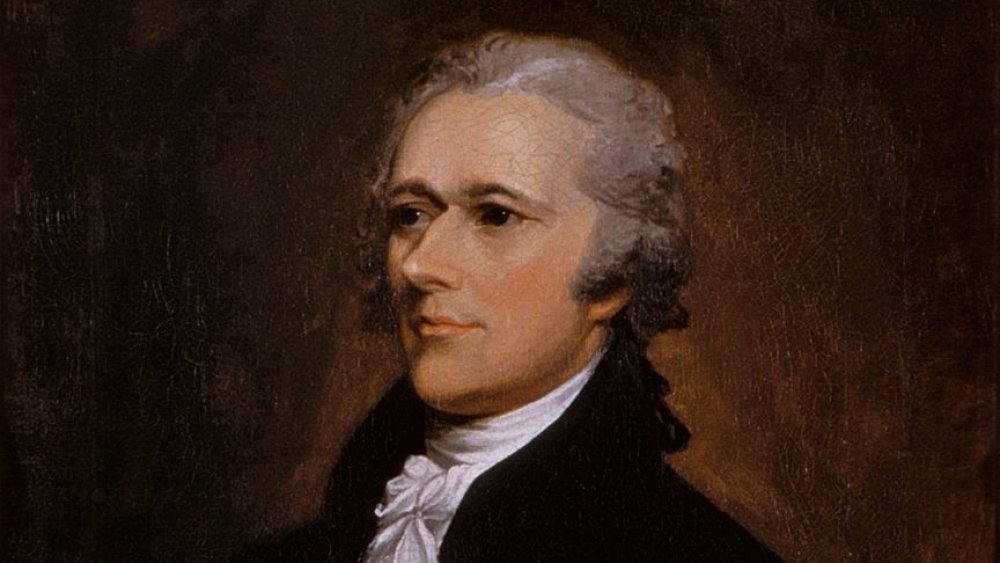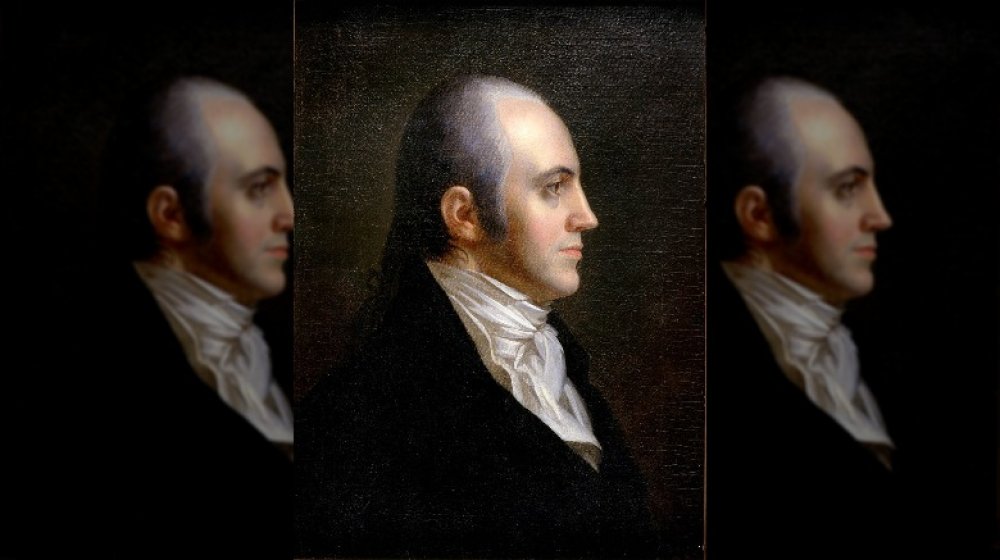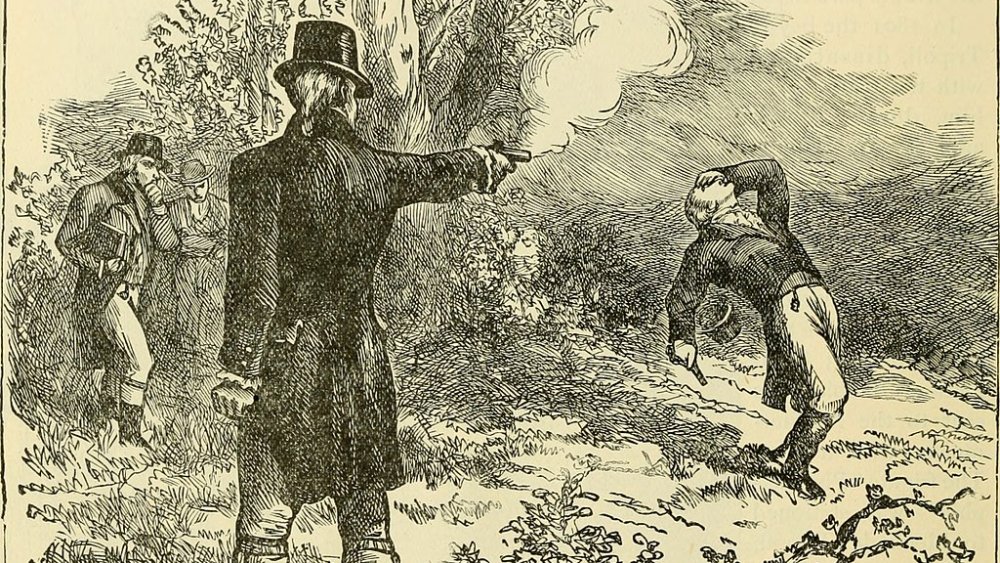The Truth About Alexander Hamilton's Death
Part of the fun of history is that interpretations of events seem to shift every so often, especially if you have conversations with people who start their sentences with the words "Well, actually...." One thing historians agree upon, more than 200 years after the fact, is that Alexander Hamilton and Aaron Burr didn't like each other very much.
Was it just political testosterone? That might have had something to do with it — they were on opposite sides of the spectrum, there in the heady days after the American Revolution, guiding and forming the newborn nation. As PBS's American Experience tells us, there was no love lost between the men. Besides belonging to opposite political parties — Hamilton was a Federalist, Burr was a Republican — Burr had been elected to the Senate, defeating Hamilton's father-in-law and costing Hamilton a much-needed ally for his policies as Secretary of the Treasury.
Burr and Hamilton didn't like each other very much
Burr had embarrassed Hamilton — basically ratted him out — by obtaining and publishing a document highly critical of Founding Father John Adams which Hamilton had intended for private circulation. Burr rolled the political dice by abandoning his party and making a bold run at the governor's mansion of New York as an independent. Hamilton worked hard in opposition to the candidacy, and Burr lost.
And then someone else tattled on Hamilton, who had spoken negatively about Burr at a private dinner party. The remarks were published and Burr, serving as Vice President of the United States but with a political career on the wane, called out Hamilton and challenged him to a duel. Hamilton could refuse the duel, but that would be dishonorable, especially for a public figure like himself. If he 'fessed up and agreed with Burr's accusation, that, too, would be dishonorable. The only way to save his political career was to agree to duel.
One and done
They met on the morning of July 11, 1804, at the same place in New Jersey — fun fact — where Hamilton's son had died in a duel, defending his father's honor. Hamilton and Burr both carried .56 caliber, single-shot dueling pistols. There was such a thing in those days as meeting to duel, but agreeing to satisfy honor (there's that word again) by firing anywhere but at your opponent. Bullets fired, bullets missed, everyone goes home, honorable and alive.
To this day, people debate whether that agreement was made, but Burr broke it. Whether Burr was a liar and a sneak or just a better and faster shot, Hamilton's shot missed while Burr's struck home. Hamilton, "chief architect of America's political economy," per the History website, died the next afternoon. Burr beat the resulting murder charges, but as for that political career of his? He never held elected office again. He was later accused of treason — but that's another story.


